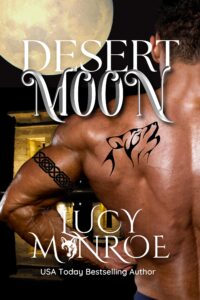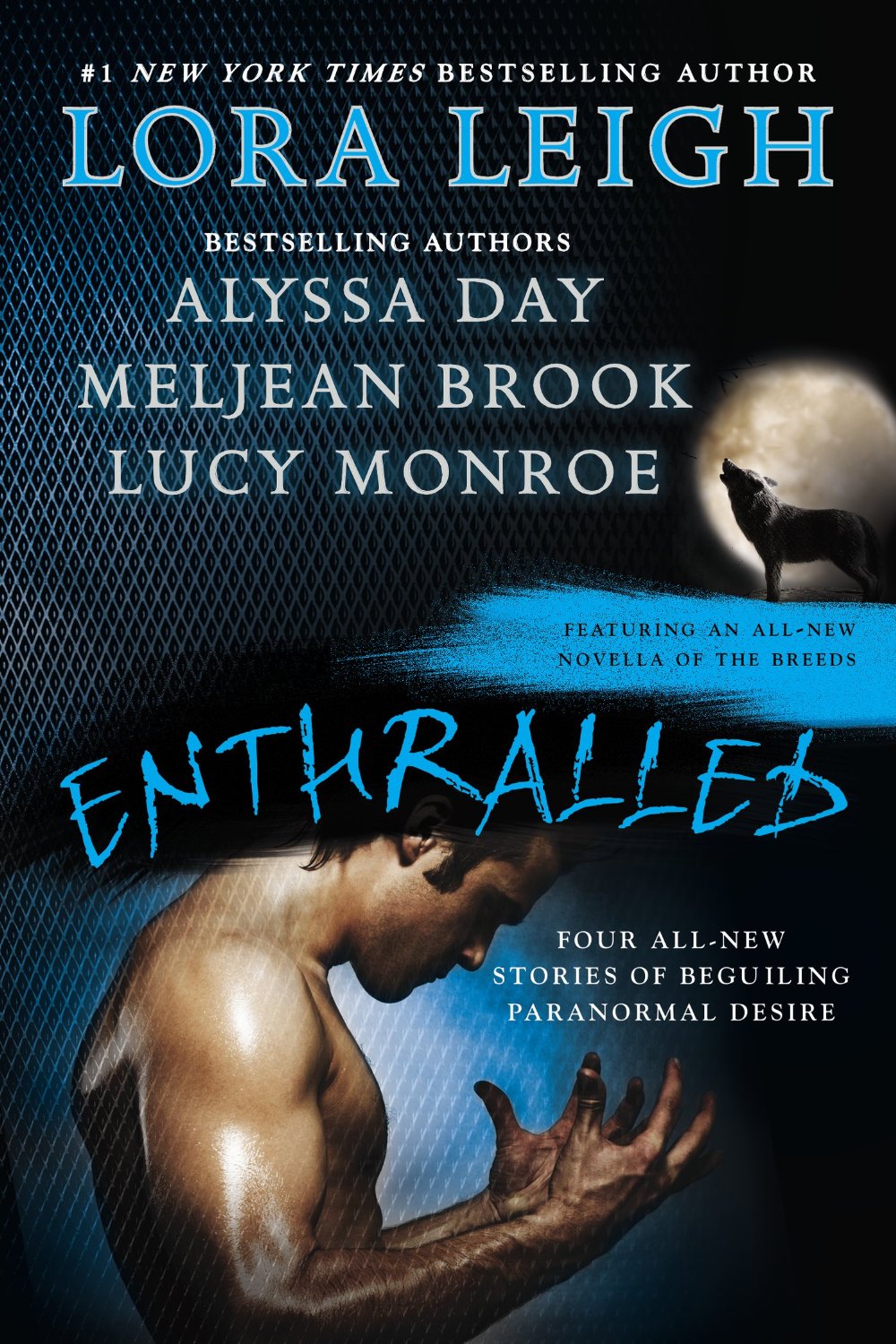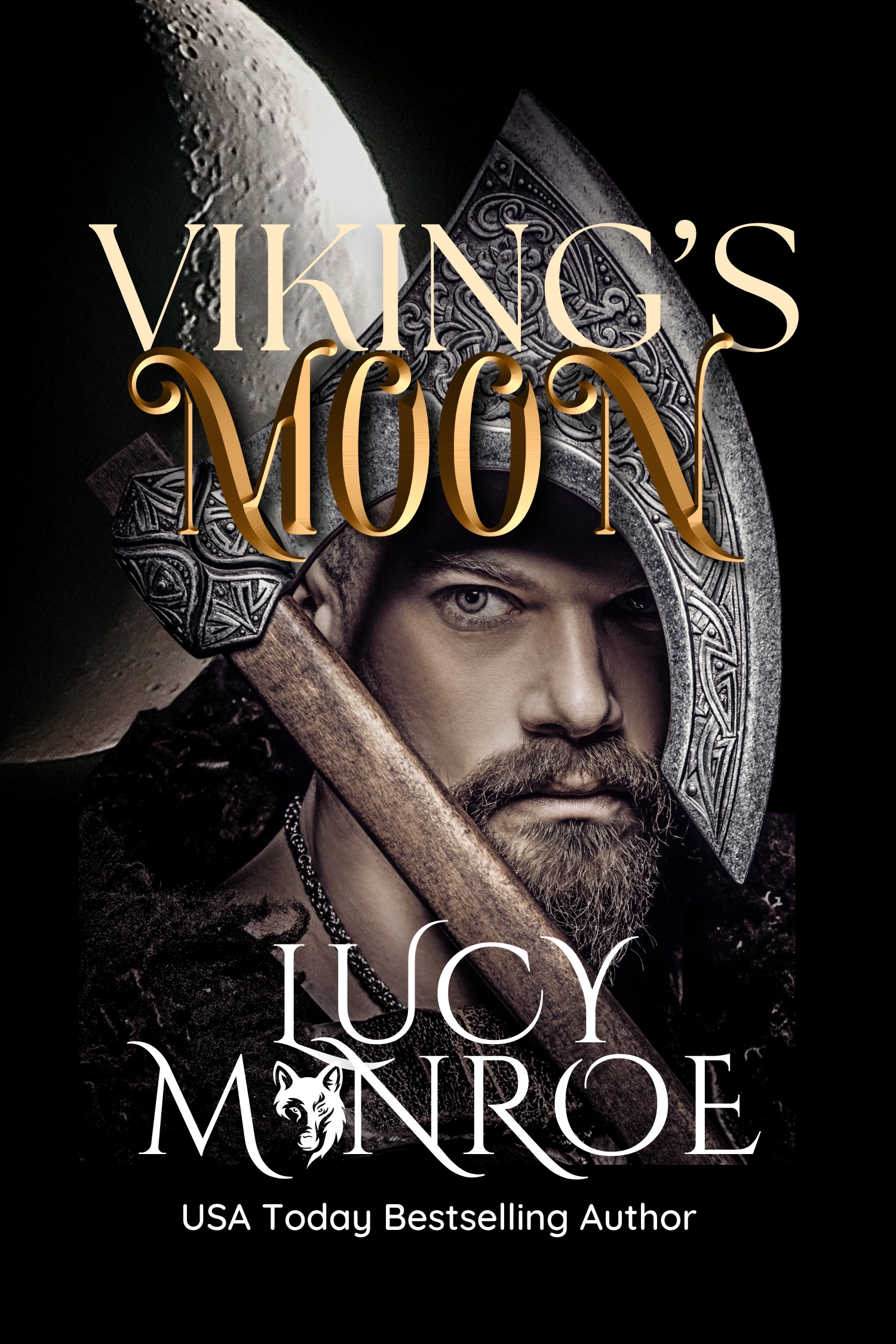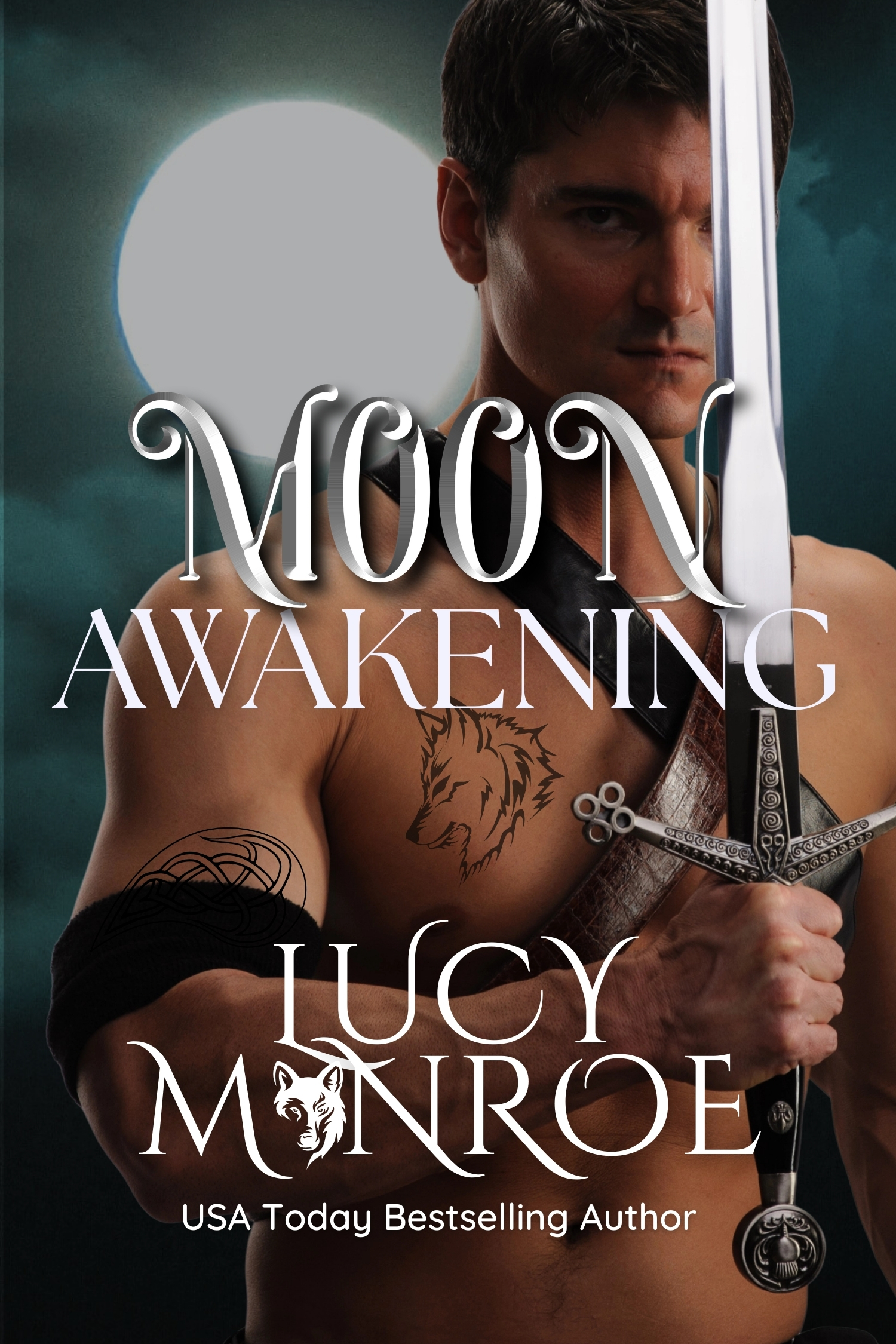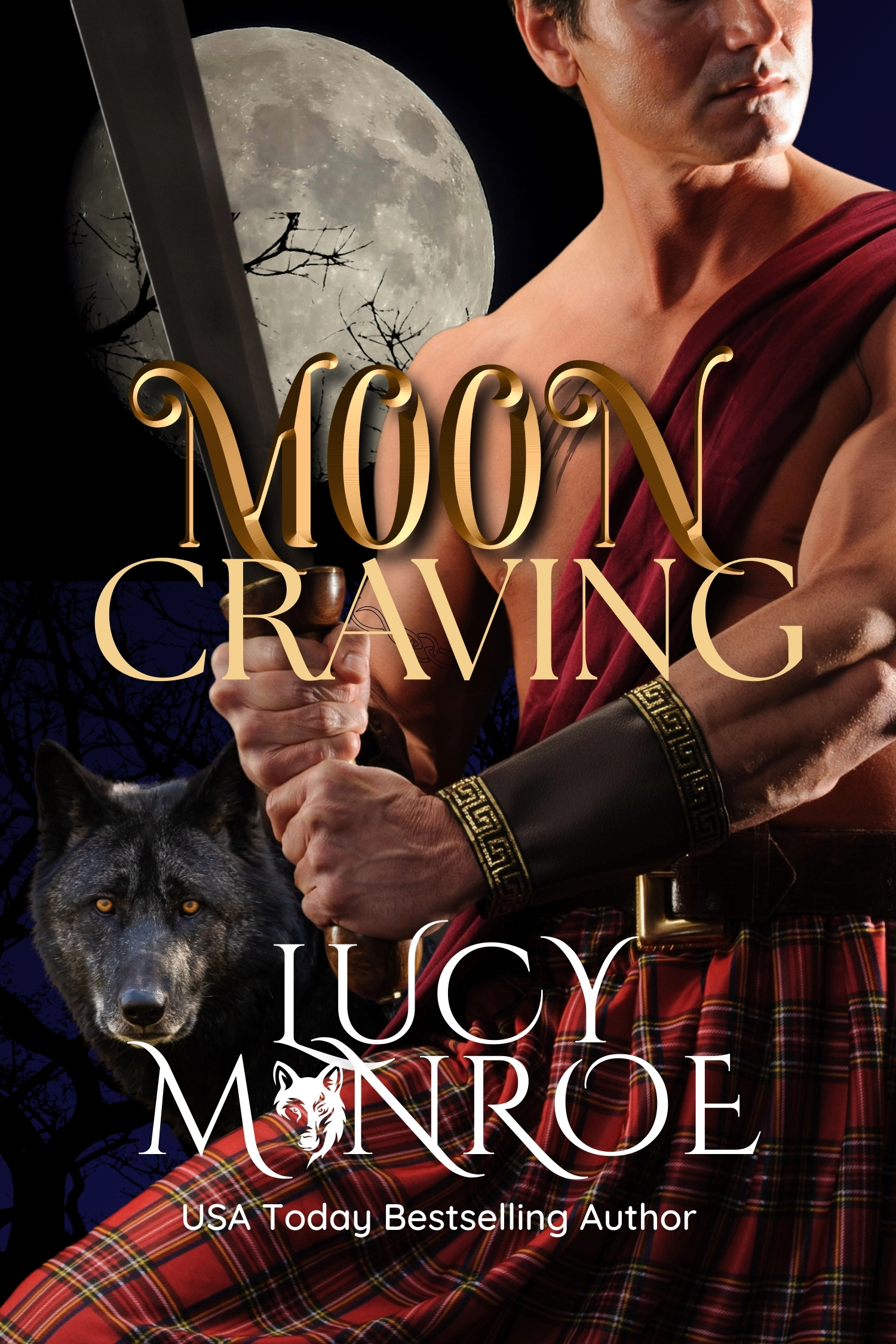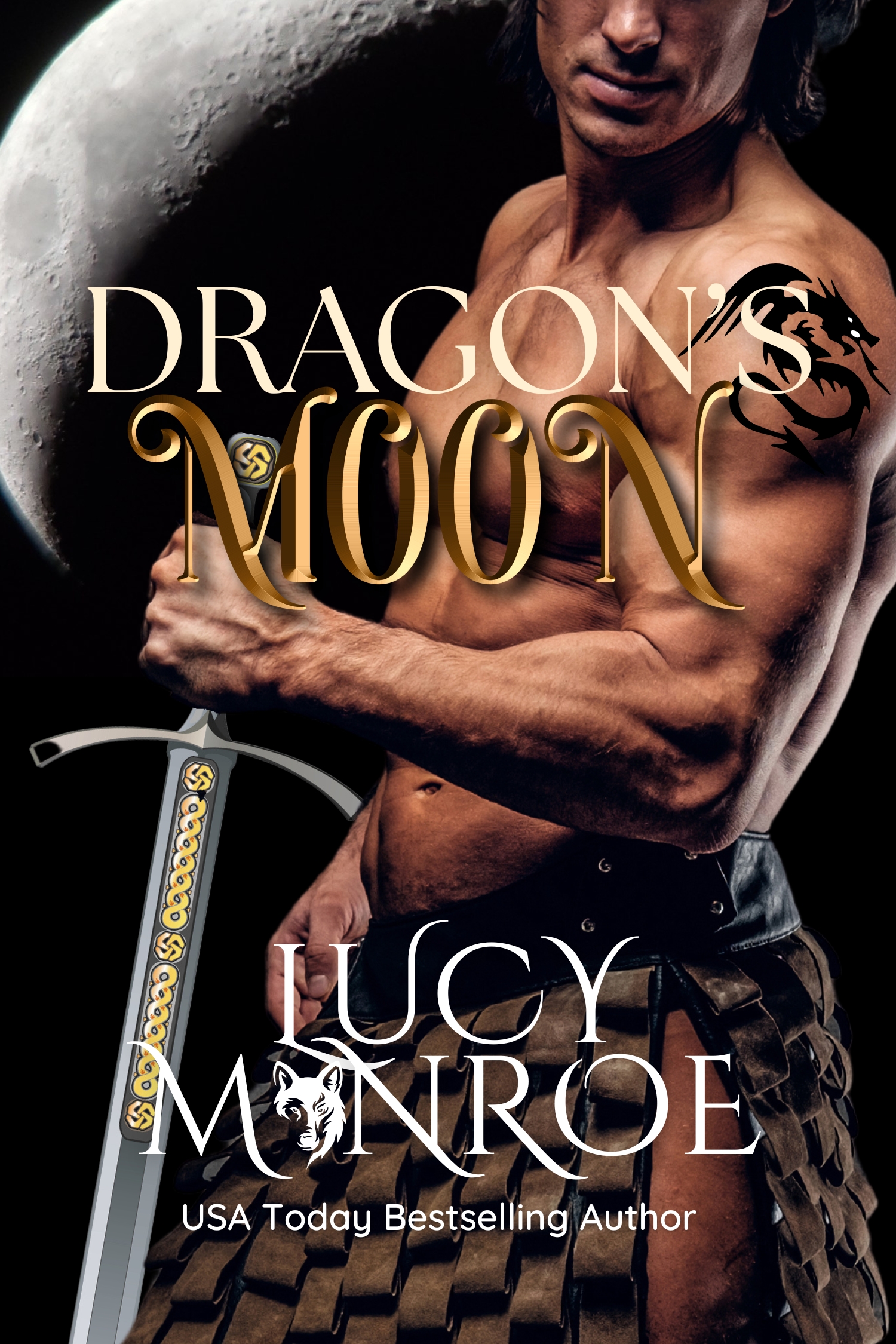Desert Moon
Children of the Moon Novel #7
From USA Today Bestselling Author Lucy Monroe comes a sweeping paranormal historical romance where Highland legends meet Regency intellect—and fated mates find each other beneath the scorching Egyptian sun.
A Highland wolf shifter. A Regency bluestocking. A love powerful enough to rewrite destiny.
Maon of the MacLeod has wandered alone for centuries, clinging to what remains of his humanity. If he doesn’t find his true mate soon, he risks going feral. He never expects to find her—not in the heat and dust of the Egyptian desert.
Adaira, a proud spinster and daughter of a minor Scottish lord, dreams not of marriage, but of founding a free library. Independent and sharp-witted, she has no interest in submitting to a man… until she meets Maon, the primal, powerful warrior who stirs her blood in ways no book ever has.
But desire may not be enough. As passion burns and cultures collide, Maon and Adaira must choose between the future they imagined—and the bond that fate demands.
A heart-pounding, sensual addition to the Children of the Moon series, with wolf shifters, fierce heroines, and guaranteed HEAs.
Reviews
“If you love historical offerings, shifters, women who are strong and know their mind, enjoy a sweet yet steamy romance then DESERT MOON is what you need to get your hands on.” – Annetta S., Fresh Fiction Reviews
“Another fantastic Children of the Moon read by Lucy Monroe. This story is set in Egypt unlike the other stories in this series. I loved Maon and Adaira . The chemistry and love scenes between this coup!e are hot! The storyline is well developed, I could not put it down. I received a ARC copy of this book for a honest review.” – Rena M., goodreads
“I’m a huge fan of Lucy’s Children of the Moon series and this latest is no exception. She has built this incredible world within the larger world seamlessly. You find conflict, action, and romance. This book takes place several thousand years after the previous but that doesn’t take away from the magic. I can’t wait for the next book. This series is one not to be missed!” – T.D., goodreads
“Overall a very entertaining read especially for those who have loved and followed this series.” – LitShit Podcast Review
Excerpt
Upper Egypt 1819
Voices speaking Gaelic froze Maon as he approached his den near the ancient temple.
The cave system hidden in the rocks behind the temple had been his home for too many years to track. No one came here. Ever.
Yet, the sounds of humanity were unmistakable.
He’d been out hunting deep in the desert in his wolf form, as he’d spent much of the past century, and had not heard the approach of people to his solitary sanctuary.
A wolf in the deserts of Egypt, Maon had slipped into the realm of mythology for most.
“Oh, Harold, look at that edifice! It is amazing.” The woman’s voice had no place here, her Gaelic accent too foreign to belong.
The scents of several people assailed Maon’s senses, six men and two women.
One of the men cleared his throat. “That it is, my dear, that it is.”
He too spoke in Gaelic, though Maon could hear quiet asides from other men in Egyptian and Arabic. The Egyptian and Arabic were familiar, but Maon had not heard his native tongue spoken by another in more centuries than he cared to count.
His gaze shifted to the hill to his right. As if he could see through the dirt and rock to the caverns within, he pictured the chest where his plaid resided. Wrapped in linens, Maon had not worn the garment since the final death of his fellow Scotsmen. They’d followed him to Egypt in hopes of saving the Chrechte race as the celi di had foretold they must do.
They had found the Paindeal. Everyone but him had found their mates and lived out their lives here in the land of the Desert Sun until the inevitable, for all but those given the dubious gift of centuries.
Maon had served his people, mostly alone, for over 700 years, facilitating connections and peace between the different Chrechte peoples in his travels throughout Africa. But then the Black Death had come, and with it, devastation.
Unlike other diseases, the plague had hit the Chrechte even harder than humans.
Some survived. He was sure his fellow guardians and the Dragon King lived. Maon’s wolf would have felt the loss if they had not, but too many of the others had gone.
Too many he could not save. Not with the power of the sacred stones, not with all his strength.
Though Chrechte still walked the earth, their numbers were too few.
His grief had driven him back to Egypt, back to solitude in the desert where few but the nomads thrived.
Maon walked alone. He had experienced the deaths of too many to want to live among his people, or the humans, again. He lived in a cave system near a temple built and forgotten in antiquity. He had none he called friend, had no idea if any of his own line continued in his homeland.
Had ceased wanting to know when children had died in his arms, the connection of the Chrechte to their sacred stones too weak to save all, or even most. The more that died, the weaker the connections between his people became until in the end, few remained.
Many sacred stones had been abandoned by Chrechte who no longer trusted in their power, or in their connection to the divine.
Those too lay nestled in linens in the chest with his old plaid.
“Is it a temple then, father?” This voice brought Maon’s attention back from his musings with a jerk.
Soft and melodious. Female. Scots Gaelic.
Along with her voice, a scent traveled on the barely there desert breeze. A scent unlike any he had ever known.
Spice, female pheromones and something like the heather from the hills of his precious Highlands.
“Are we allowed to be here?” Adaira stared in awe at the ancient place of worship that surely had to have been built when Pharaohs ruled Egypt.
“Why shouldn’t we be here? We have permission to travel, a writ to excavate from Salt himself.” Her father shook his head at her. “Those who once worshipped here are long gone and we are the first people to see this place in millennia.”
“You mean other than the Egyptians?” she asked, doing her best not to roll her eyes. That would only get her scolded, though at nine and twenty years, she was hardly a child.
“Naturally, but they hardly count. Our guide is not going to write this find up for the Royal Society of Egyptology, is he?”
“Are you saying that all the archaic sites you’ve visited that you didn’t write a paper on do not count? Or perhaps you do not wish me to include them in my notes for your memoirs?” she asked, knowing that was far from the case.
Rather than answer, her father simply shook his head, like Adaira was the most annoying person in his life.
In all likelihood, she was.
A spinster who had more interest in her studies and women’s suffrage than travel to far lands in search of in antiquities, she was a conundrum her father had long since ceased trying to understand.
Not that he had ever tried very hard. Adaira could never compete for his interest, or indeed that of her mother, when they were so wholly consumed by their Egyptomania.
However, it was that very mania that would make her own dream possible, so she could not bemoan it.
She had been invited to attend this trip as her mother’s secretary. It was Adaira’s job to record the trip and both her parents’ observations and experiences as well as using her drawing skills to illustrate what would become Sir Harold and Lady Fenella Cameron’s joint memoir.
Though she would be the one doing most of the writing, Adaira was not certain her parents had any intention of even mentioning they had a daughter in it.
This was to be their published journal of their years spent pursuing their passion for Egyptology.
They considered themselves something more than amateur archeologists, though this was the first dig her father had managed to procure a writ for on his own. He had spent the last three years wooing Henry Salt, Consul General for Britain to Egypt, in order to obtain it.
Adaira had to bite back an unladylike curse when she realized that Father and Mother had disappeared inside the temple, along with their guide and the rest of their traveling party.
The workmen were not scheduled to arrive at the site until the following day. Whether they would actually arrive then, or a week later, was anyone’s guess.
Awed and still taking in the magnitude of the structure, Adaira did not immediately follow the others. She was used to being left on her own by her parents and she’d quickly learned she would miss her own moments of discovery if she spent all of her time chasing after them.
Immense statues showing the wear of time stood in imposing relief outside the temple. Wanting to get closer to the hieroglyphs she had no hope of reading, but which fascinated her all the same, Adaira moved nearer the structure.
She could hear father’s voice from inside, his exclamations echoing, his pronouncements of era and which cult the temple was dedicated to more supposition than knowledge, of that she was sure.
That wasn’t to say that her father didn’t study Egyptology with the fervor of the obsessed. He did. However, it was unlikely he could make such pronouncements with true accuracy so quickly.
Her mother’s higher tones mixed in with his, the older woman’s excitement obvious.
Antiquity hounds, both of them, their greatest passion was ancient history and its artifacts. Egyptology to be precise. Some people collected fossils, some shells and she knew men obsessed by horses. Her parents collected anything related to Egypt, including experiences.
They had traveled to famous sights of antiquity for as long as she could remember, but full on Egyptomania had set in when Adaira was twelve. From that point on, they had restricted their travels to Egypt, spending at least six months of the year in Cairo or Alexandria, and visiting the digs of others.
Their clothing and the décor of their home back in Scotland reflected that Egyptomania. Adaira’s mother wore turbans as a matter of course and often lined her eyes with kohl to affect the popular Egyptian look. She even had a wig of black braids she wore with a circlet of gold and gems to soirees, her dresses designed to reflect what she considered ancient Egyptian sensibilities. Over a proper corset, of course.
Adaira found it all very off putting, that her parents and their cronies made this pretense to something which was not their own. But then she had fingertips stained with ink more often than not. Adaira could make no claim to fashion, current or otherwise.
Grandmother said it did not matter. That Adaira was an original.
Others had names for her that were not nearly so complimentary.
She’d spent most of her childhood living with her mother’s mother. Gran had come to stay at the house entailed to her father’s minor title when Adaira was born, and had never left.
Taking a child on their adventures had not once crossed her parents’ minds she was sure. By the time she was old enough to travel with them and be of some use, Adaira had not wanted to leave her aging grandmother alone.
This trip was unique and Adaira had been surprised at the invitation to travel with her parents this year.
It offered the opportunity for Adaira to do the one thing she’d been dreaming of for years: open a library for the local working class and farming community near her father’s estate.
In exchange for her accompanying them to Egypt and writing the “bones of their memoir” – which she had interpreted to mean all of it – and helping on the dig, her father had offered to sign over a small hut on the estate to her to use for the library as well as to give her a percentage of the proceeds from all treasures found on the dig.
It was a surprisingly generous offer that exhibited a willingness to support her dreams even if her parents did not understand them. Adaira thought that the time might have come to get to know her parents better as well. Too soon for her liking, they would be the only family she had left.
Gran had strongly encouraged Adaira to accept her father’s offer and accompany her parents to Egypt; she couldn’t help worrying the older woman’s heart wouldn’t last until her return, but Gran had been insistent.
Neither Mother, nor Father were as young as they used to be either. Adaira had already been glad she’d come along more than once when she’d been able to see to their wellbeing as she often did for her grandmother.
Fanning herself in the air that was still and hot, even in the shade of the temple, she noticed movement in the corner of her eye.
Startled, she turned to watch a man emerge from around an outcropping of rock. In Egyptian robes, he stood a head taller than any man in her father’s excavation party and moved with restrained power that about took her breath away. Skin bronzed by the sun, she could not see the color of his hair for the neatly wrapped turban, the same desert sand color of his robes, but as he got closer she saw his eyes were brown.
Not dark brown as most of the native Egyptians she had met, but the color of amber. Or well-aged whiskey.
Beautiful.
Heat crawled up her cheeks for the thought. She was twenty-nine years old, a bona fide spinster and she had never once thought a man’s eyes beautiful. To be fair, she avoided men for the most part, having no desire to give up what autonomy she had to the shackles of marriage.
The man stopped when he was only a few feet away, his expression impossible to read.
He said something in Arabic. It sounded like a curse.
“Who are you?” he demanded in Gaelic, though his accent was rustic. Like he was from the wilds of the Highlands and a bygone era to boot.
“I am Lady Adaira Cameron.” Impressed she’d remembered her title when faced with provocation unlike any she’d known before, Adaira gave a slight curtsy. It was too hot and the things she carried prevented anything truly impressive. “Who are you?” she asked.
“You’re a Cameron?” he demanded. “Of the Lowlands?”
Lowlands? So, he was from the Highlands. Must be. Only a Highlander would make the distinction in that tone of voice. She nodded, her voice deserting her as it never did.
“What are you doing here?”
For a moment, Adaira had no answer as her usually facile brain still grappling with his presence. Admonishing herself not act like a ninny, she drew in a deep breath and released it before forcing speech.
“More to the point, what are you doing here?” she asked more pertly than she would have given herself credit for, her powers of speech returning. Even if him speaking Gaelic had not given him away, it was clear standing this close to the man, that he was not Egyptian or Persian.
“I live here.”
She looked around, seeing no evidence of a dwelling. But beyond the rocky outcropping, there were dark crevices in the hillside. Like openings. “In a cave?” she asked in disbelief. “Like a Medieval hermit?”
“Aye.” He made no attempt to deny or mitigate her supposition.
“You speak Gaelic.”
“Aye.”
“How?”
“The land of MacDonald was once my home.”
“You mean Scotland?” MacDonald was a common family name in the great city of Edinburgh, but she was convinced he was not from there. “You’re from the Highlands.”
“You are not.”
He made it sound like she was lacking, but one thing Adaira was not, was shamed by her home or the people she’d left behind there to come on this trip. “Nay, I am not. I grew up civilized.”
What made her take a jab at him, she did not know, but his attitude irked her.
“Civilization.” He spat the word like a curse.
“As opposed to a cave dweller, yes.”
“How I live is naught to you.”
“I could say the same.”
He grimaced, shook his head and turned away, muttering something in French this time. She caught words like, now? After all this time? Then a Gaelic word she had no trouble deciphering as they were in Gaelic. Sassenach and then enemy.
“I’m no Englishwoman!” she said forcefully. And why he should call her enemy she could not imagine. “We’ve never even met. I cannot be your enemy.”
Though she wasn’t ruling out the possibility that circumstance could come to pass.
Adaira watched the strange and intriguing man walk toward the temple into which her parents had disappeared. Hurrying to catch up, she slowed as she came abreast of him.
He was still muttering in the language she did not understand.
“You’re not speaking French,” she observed.
He stopped, like shocked she’d come upon him. “Not French, no.”
“What language are you speaking then?”
He leaned forward and sniffed her.
She stepped back. “Sir!”
“I am no gentle sir. Never have been.” He frowned. “You dinna smell like Chrechte.”
“Chrechte?” It was not a word she knew.
He shook his head.
“I think that if you are going to use words others do not know, it is only polite to tell them what the word means when asked,” she told him primly, and a little breathlessly.
For every step he took, she had to take two. She was practically running and her lightweight riding habit made wasn’t feeling as refreshing as it had earlier. It would help if she weren’t carrying a valise, but her mother insisted on having certain things at hand. Things that filled a valise.
Then there was the infernal parasol that Adaira would have tossed into the sand weeks ago if she had not realized it provided her only shade on occasion and the desert sun would bake her without it, despite her bonnet.
“You talk a lot.”
He wasn’t the first to say so, but she had no intention of opening her mouth to blurt out that truth.
“You still have not told me what Chrechte refers to,” she reminded.
“It is a people from long ago. Too long.” He shook his head again, his expression dour.
“They live no more?” she wondered. “Like the fabled Picts?” Then why would he think she was one, and more importantly, how was he so sure she was not?
Her parents often commented her curiosity would get her in dire trouble one day. She didn’t believe it. Her quirky nature, as her friends called it, had prevented men from courting her and that was all to the good in her opinion.
“They still live,” he said in his deep timber.
“You said from long ago.”
“Those I knew lived long ago.”
“You don’t look that old.” Perhaps a few years older than her, but no more. Certainly not as old as her parents.
“You would be surprised, lass.”
She shrugged. It wasn’t ladylike, but Adaira had long since given up on any attempt at paragon perfection. Oh, she was still a lady, but not perfect in that role, as many had been quick to point out.
“How can you be so sure I’m not of these people?”
The man just shook his head, not answering.
“Not a thing to take home for our efforts,” her father was lamenting loudly as Adaira and the strange Scotsman came inside the temple. “Someone got here before us and has already dug the temple out of the sands.”
The Scotsman dressed as a desert dweller swore, though again she didn’t recognize the language he used. But that tone of voice was unmistakable.
He was cursing.
Her parents stopped and stared. “Who are you?” her mother demanded.
Papa grew red with choler. “Don’t tell my you’ve already recorded this find?”
Ignoring her father, the man stared at Adaira, his expression filled with judgment. “You came to rob the dead?”
Adaira squirmed under the big man’s regard. Is that how he saw it? Was he wrong?
“I did not come with the intention of showing any disrespect to those who have gone before.” Only now, she had to wonder if intentional, or not, that would be the result of their labors.
Though the Egyptians of antiquity were long gone, was the practice of digging up their temples and tombs and taking what had been buried for thousands of years robbing the dead?
Adaira had never considered her parents’ obsession in that light. Archeology, such as it was, was not merely the study of what had come before.
If it were, there would not be museums and private collections filled with artifacts from those lives studied. Archeologists who had come before and those now in Egypt took their artifacts back with them, even if some were left in Egypt at the insistence of Muhammad Ali Pasha.
“The dead have been gone too long to worry about their sensibilities,” her father said with bombastic certainty.
A certainty Adaira could not share in that moment, even if she had planned to finance her dream on doing just that.
“The dead had a right to be here. You do not.” The sound of the man’s voice echoed off the high walls of the temple, like an oracle spoke through him.
Adaira shivered. “What is your name?” she blurted.
Ignoring her parents again, he bowed to her. “I am Maon, protector and guardian.”








